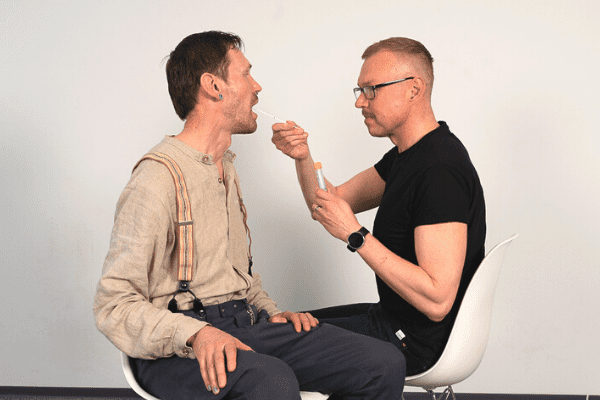
Hivpoint conducted the survey in June 2021 on men who have sex with men. The survey tested knowledge related to testing for sexually transmitted infections.
Not everyone is well enough informed about sexually transmitted infections (henceforth STI’s), how they are transmitted and tested properly. This is probably no news, as in today’s world, both necessary and unnecessary information is endlessly available. However, when it comes to sex, things can also be complicated because of the shame and lack of talk. This might mean that not all the necessary STI tests are taken or that the tests are taken incorrectly.
The need for a throat or anus sample is not always recognized
The respondents of the survey were fairly well aware that HIV and other STI´s can be symptomless: 90% of all respondents knew that ”HIV and other STIs can be symptomless. The only way to know if you have been infected is to get tested”. Under the age of 25 slightly fewer respondents, about 77%, knew this.
In contrast, it was less well known that a urine test is not sufficient to detect or exclude chlamydia or gonorrhea infection if the infection is in the throat.
About 70% of all respondents knew that a throat swab was needed in this situation. Only about 48% of those under 25 knew this.
There was also a lack of information about the need for taking the test from anal.
About 68% of respondents knew that if they have been on the receiving end of anal sex (bottom), it should be mentioned when taking STI tests in order for the tests to be taken from the right places. Again, the youngest respondents, under the age of 25, knew this less often (about half knew).
The respondents had the weakest knowledge on the survey statement: “Chlamydia and gonorrhea can transmit to anus via fingers if there is secretion on them that has bacteria that causes chlamydia and/or gonorrhea”. About 46% of all respondents knew this and about 39% of the youngest respondents, under age of 25, knew it.
Talking about sex and sex habits is part of STI testing and it leads to a better outcome
When you get tested for chlamydia and gonorrhea, always remember to tell your healthcare professional what kind of sex you have had to make sure the tests are taken correctly and infections can be treated right. Syphilis and HIV are always tested from a blood sample, and several weeks later than gonorrhea and chlamydia. Thus, in addition to sex practices, it is essential to discuss the timing of sexual contacts so that tests are done at the right time.
At Hivpoint, we get feedback from our customers about their problems when having STI tests. Based on this feedback, in many places where STI testing is performed, tests are not taken correctly: often only a urine sample has been taken, although based on the sex habits, also samples from the throat and / or anus would have been necessary.
So, if you are asked what kind of sex you have had when testing for STI’s, you do not have to feel ashamed or embarrassed. Instead, you can be happy, because then the testing is likely to be done correctly.
When there is an opportunity to talk about sex during STI testing, it leads to a better outcome in terms of sexual health. Transparency in STI testing can also lead to a good opportunity to ask questions about your sexual health and get individual counseling.
